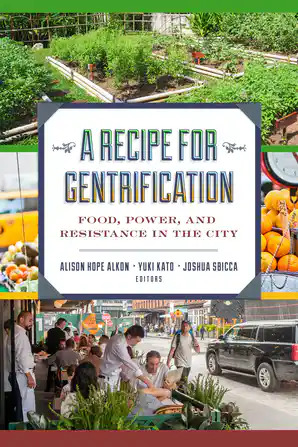Change is inevitable, but is gentrification?
DOI:
https://doi.org/10.5304/jafscd.2022.113.015
Keywords:
Urban Agriculture, Urban Development, Gentrification, Community Organizing, Community Gardens, Alternative Food SystemsAbstract
Review of A Recipe for Gentrification: Food, Power, and Resistance in the City, edited by Alison Hope Alkon, Yuki Kato, and Joshua Sbicca.
First paragraph:
A Recipe for Gentrification is a masterful exploration of the complex relationship between intent and impact at the intersection of alternative food systems and urban development. The goal of this edited volume is to unpack the ways in which food systems can both drive and resist gentrification. The introduction lays out the many nuanced drivers of both processes. For instance, well-intentioned efforts to increase food access in a neighborhood can be an early initiator of gentrification. And urban agriculture and public green spaces are frequently co-opted for development efforts. At its best, food empowers a strong cultural sense of self and fuels efforts for sovereignty in marginalized communities. This volume aids in exploring these entangled effects through what may be simplified as a study of impact vs. intent. . . .
Metrics

Downloads
Published
How to Cite
Issue
Section
Categories
License
Copyright (c) 2022 Megan Marshall

This work is licensed under a Creative Commons Attribution 4.0 International License.
The copyright to all content published in JAFSCD belongs to the author(s). It is licensed as CC BY 4.0. This license determines how you may reprint, copy, distribute, or otherwise share JAFSCD content.











